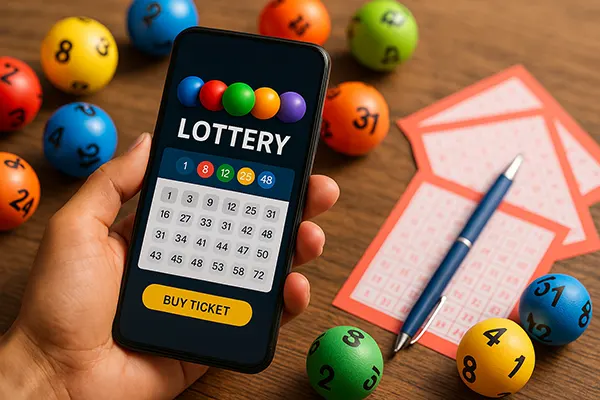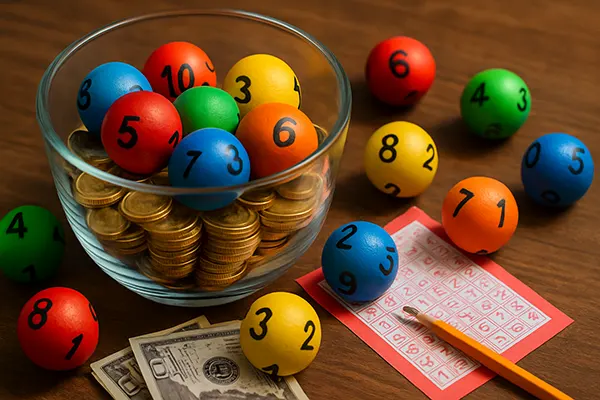
Lottery in the Age of Mobile Apps: Trusted Choices for 2025
The global lottery industry has rapidly shifted towards mobile applications, offering convenience and flexibility never seen before. As the market grows, so does the number of apps claiming to offer fair play, instant results, and secure transactions. For users in 2025, the key challenge lies in distinguishing reliable lottery apps from those that lack transparency or regulation. This article explores the current landscape, provides expert analysis, and recommends secure options based on verifiable criteria.
Regulation and Licensing: How to Identify Legitimate Lottery Apps
One of the most important criteria in assessing the reliability of a lottery app is the licensing authority under which it operates. In 2025, credible apps are licensed by jurisdictions such as the UK Gambling Commission, Malta Gaming Authority, or Swedish Spelinspektionen. These regulators ensure that apps operate transparently, follow anti-fraud procedures, and provide fair draws using certified random number generators (RNGs).
In addition to licensing, reliable apps publish audit reports from independent bodies such as eCOGRA or iTech Labs. These audits confirm the integrity of draws, frequency of payouts, and adherence to responsible gaming policies. Users should always check for this documentation before downloading or depositing funds.
Another reliable indicator is the presence of in-app information about responsible gambling tools: session limits, self-exclusion features, and quick-access support. These features are mandatory for licensed services, and their absence could suggest a lack of regulatory oversight.
Top Licensed Lottery Apps to Consider
In 2025, some of the most trustworthy lottery apps include the UK’s National Lottery App, Lottoland, and Jackpocket (licensed in the U.S.). Each of these apps complies with national or regional regulations and maintains transparent draw histories, real-time results, and encrypted user data protocols. National Lottery App users benefit from direct integration with official state-run games.
Lottoland operates under the Gibraltar Betting and Gaming Association licence and offers insurance-backed payouts for large wins. The app provides access to international lotteries like EuroMillions, MegaMillions, and Powerball, with full transparency on ticket pricing and odds.
Jackpocket, licensed in multiple U.S. states, allows users to order official state lottery tickets through a secure courier service. It maintains a clean compliance record and provides in-depth ticket tracking and digital receipt storage for user protection.
User Security and Data Protection in Lottery Applications
Data protection remains a core concern for users engaging in online lotteries via mobile apps. In 2025, leading lottery applications are required to comply with the General Data Protection Regulation (GDPR) in Europe, or equivalent standards elsewhere. This includes encrypted communication, anonymised data storage, and transparent data sharing policies.
All financial transactions—deposits and withdrawals—must be handled through secure payment gateways. Trusted apps partner with well-known providers like Visa, Mastercard, PayPal, or Apple Pay. In-app purchases are also secured through biometric or two-factor authentication, reducing the risk of unauthorised access.
Users are encouraged to review app permissions before installation. Trusted lottery apps will never require access to unnecessary data such as contact lists or microphone use. If such permissions are requested, it’s a strong sign the app may not be secure or compliant with privacy regulations.
Common Security Features in Trusted Lottery Apps
Among the key security features in 2025 are biometric login, real-time fraud detection algorithms, and PIN-locked transaction approval. Apps such as Camelot’s National Lottery App and EuroJackpot ensure all ticket purchases are verified through secure layers, with digital tickets available instantly in the app interface.
Some apps go further by offering self-verification of results via blockchain timestamping. This guarantees that draw data has not been manipulated post-event. While still a niche feature, its adoption is increasing across European lottery operators aiming for greater transparency.
Periodic user verification (KYC) has also become mandatory. While it adds a layer of bureaucracy, it protects both the user and the operator from fraudulent activity. Reputable apps guide users through this process smoothly, without excessive personal data demands.

Global Accessibility and Legal Availability in 2025
Lottery laws vary significantly across countries, and the legal status of mobile lottery apps depends on regional legislation. In 2025, more than 80 countries have approved mobile lottery operations under strict licensing frameworks. However, several jurisdictions still restrict participation due to anti-gambling laws or limited regulatory capacity.
In Europe, mobile lottery apps are broadly available in countries such as the UK, Germany, Denmark, and Sweden. National operators typically maintain their own apps, while private services must adhere to strict compliance standards. Latin American countries like Brazil and Argentina are also emerging markets with expanding mobile lottery ecosystems.
In contrast, regions such as India or the UAE restrict most forms of online gambling, including lotteries. Here, app stores often block access to gambling-related apps, and users attempting to bypass such blocks may risk violating local laws. Always consult regional laws before installing any gambling-related software.
How to Ensure Your Chosen App Is Legal in Your Region
Before downloading, users should consult the official gambling authority’s website of their country. Most jurisdictions maintain public databases of licensed operators and approved applications. If a lottery app is not listed, it’s safer to avoid it altogether.
International lottery services, like TheLotter or Lotto Agent, sometimes operate in grey zones. While these apps offer access to global draws, their legality depends on whether the user’s jurisdiction permits ticket courier services or secondary betting models. Read the terms of service carefully and ensure there is no conflict with local legislation.
For those unsure, it’s advisable to begin with a nationally recognised lottery app. These are typically promoted through government websites or well-established media channels, ensuring their legal compliance and operational security.
